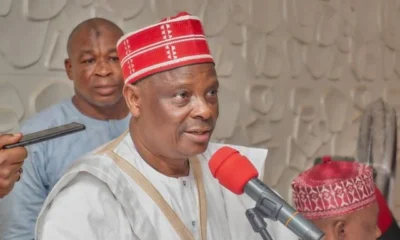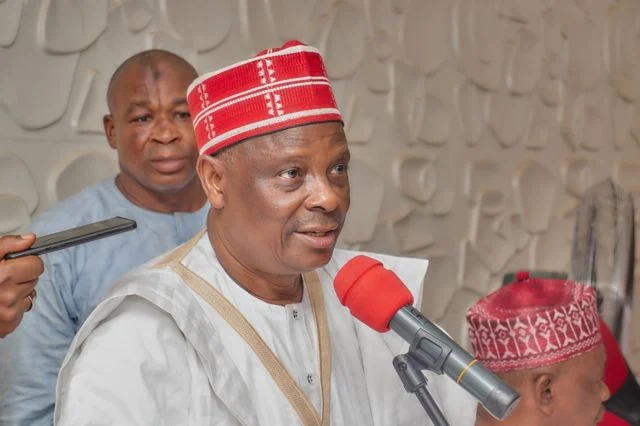At the weekend, major global equities lagged behind Nigerian equities in a steady surge that had seen investors win about N3.3 trillion over the previous three weeks.
Equities closed at the weekend with an average return of 5.49 percent, the highest among the main global indices, with more than three-quarters of trades at the stock market being completed at a premium.
Nigeria’s average year-to-date return has increased to 15.12 percent, placing it in the top quartile of all countries with respect to share price growth so far this year, thanks to the persistent rally that was sparked by President Bola Tinubu’s inauguration on May 29.
The All Share Index (ASI)- the common value-based index that tracks all share prices at the Nigerian Exchange (NGX), rose to 59,000.96 points at the weekend, representing a return of 5.49 percent on the week’s opening index of 55,930.97 points. This implied a net capital gain of N1.67 trillion within the four-day trading session last week.
The performance of equities was ahead of other global indices, which also showed a broadly positive global sentiment.
In the United States (U.S.), the Dow Jones Industrial Average and S & P 500 Index closed the week with average returns of 1.6 percent and 3.0 percent respectively.
The FTSE 100 Index in the United Kingdom (UK) appreciated by 1.3 percent, while Japan’s Nikkei 225 Index rose by 4.5 percent. China’s SSE posted an average gain of 1.3 percent.
The MSCI EM- which tracks emerging markets, rose by 2.1 percent while the MSCI FM – which tracks frontier markets, appreciated by 1.0 percent.
For three consecutive weeks, the local equities have sustained a strong bullish momentum as the Tinubu administration begins the implementation of key policy reforms encapsulated in his manifesto and further enunciated in the May 29 inaugural address.
In a speech that had been described as market-friendly, Tinubu addressed general issues of security, economy, infrastructure, and monetary outlook. The president also directly addressed investors’ concerns on multiple taxations, returns repatriation, and foreign exchange (forex) among others.
“I have a message for our investors, local and foreign, our government shall review all their complaints about multiple taxations and various anti-investment inhibitions. We shall ensure that investors and foreign businesses repatriate their hard-earned dividends and profits home,” Tinubu said, immediately after his inauguration at the Eagle Square, Abuja.
The new administration has since given effect to the stoppage of the fuel subsidy, abolished the multiple forex rates, and instituted probes into major issues of public finance.
The ASI, which opened May 29 at 52,973.88 points, has gained 11.38 percent over the past three weeks, equivalent to net capital gains of N3.28 trillion.
The aggregate market value of all quoted equities at the NGX rose concurrently from its opening value of N28.845 trillion on May 29, to N32.126 trillion at the weekend, an increase of N3.28 trillion.
Market analysts were unanimous that the sustained rally was in response to Tinubu’s pro-market stance, with many of them predicting that a rebound in foreign direct and portfolio inflows would lead to repricing of Nigerian stocks, which had been underpriced by long-running apathy from foreign investors.
Managing Director, APT Securities and Funds Limited, Mallam Garba Kurfi, said the market was responding to the expectations of reforms implied in the president’s address.
Kurfi said: “The speech is excellent, especially as regards converging exchange rate into one; that will attract inflow of foreign Investors. The removal of fuel subsidy will attract more investments in the refineries and removal of double taxes will also bring more Investments into the country, and all these will reduce unemployment and increase productivities.”
Group Executive Director, Investment Banking, Cordros Capital, Mr. Femi Ademola, said the market was expectedly to respond to the pro-economy outlook of the Tinubu administration.
He said the peaceful transition of power and the inaugural speech of the president “struck the right cords” since markets react to sentiments.
According to him, the market is expected to react very strongly and positively to the government agenda including end to fuel subsidy, lower interest rates, end to multiple exchange rates, and ease of capital repatriation by foreign investors.
He said: “These are expected to attract investments back into the country as investors return and strengthen the country’s exchange rate. Perhaps, one very notable issue is the issue of lower interest rates.
“This may indicate that the administration will not be looking at attracting portfolio investment with high-interest rates but more likely direct and patient investment that would stay for a longer period.
“While the market may still continue with its usual zigzag movements, the implementation of these policy reforms would ensure more positive movements on the market than negative.
“Supporting the monetary policy changes with the required fiscal reforms such as infrastructure development would add to the sustainability of the growth plan for the economy.
“I am happy with the inaugural speech and the plans of action as it is what is needed at this time. However, it has to go beyond words and intentions; the administration must hit the ground and run with the implementation of the policies.”
Chief Operating Officer at GTI Capital Group, Mr. Kehinde Hassan, said the general economic outlook enunciated by the president would herald new thematic growth for the economy.
He said investors appeared favorably disposed to the various initiatives, noting that the market response was a sort of a vote of confidence in the president’s economic direction.
Afrinvest Securities said “economy reform optimism” bolstered the market performance, noting that “the rally in the market followed the promise of critical reforms by the President Bola Tinubu administration”.
Coronation Securities Limited said: “President Bola Ahmed Tinubu’s inaugural address was given yesterday (Monday), and it sparked the equity market’s imagination, with a rally of 5.23 percent today (yesterday).
“The announcement of key market reforms, including phasing out fuel subsidies and unifying foreign exchange rates, shows that pro-market policies were not just items in the manifesto but issues which he is setting out to fix. If they are fixed, we expect much more from the equity market.”
Credit: The Nation

 BIG STORY4 days ago
BIG STORY4 days ago
 BIG STORY4 days ago
BIG STORY4 days ago
 BIG STORY5 days ago
BIG STORY5 days ago
 BIG STORY2 days ago
BIG STORY2 days ago
 BIG STORY1 day ago
BIG STORY1 day ago
 BIG STORY4 days ago
BIG STORY4 days ago
 BIG STORY4 days ago
BIG STORY4 days ago
 BIG STORY4 days ago
BIG STORY4 days ago






















